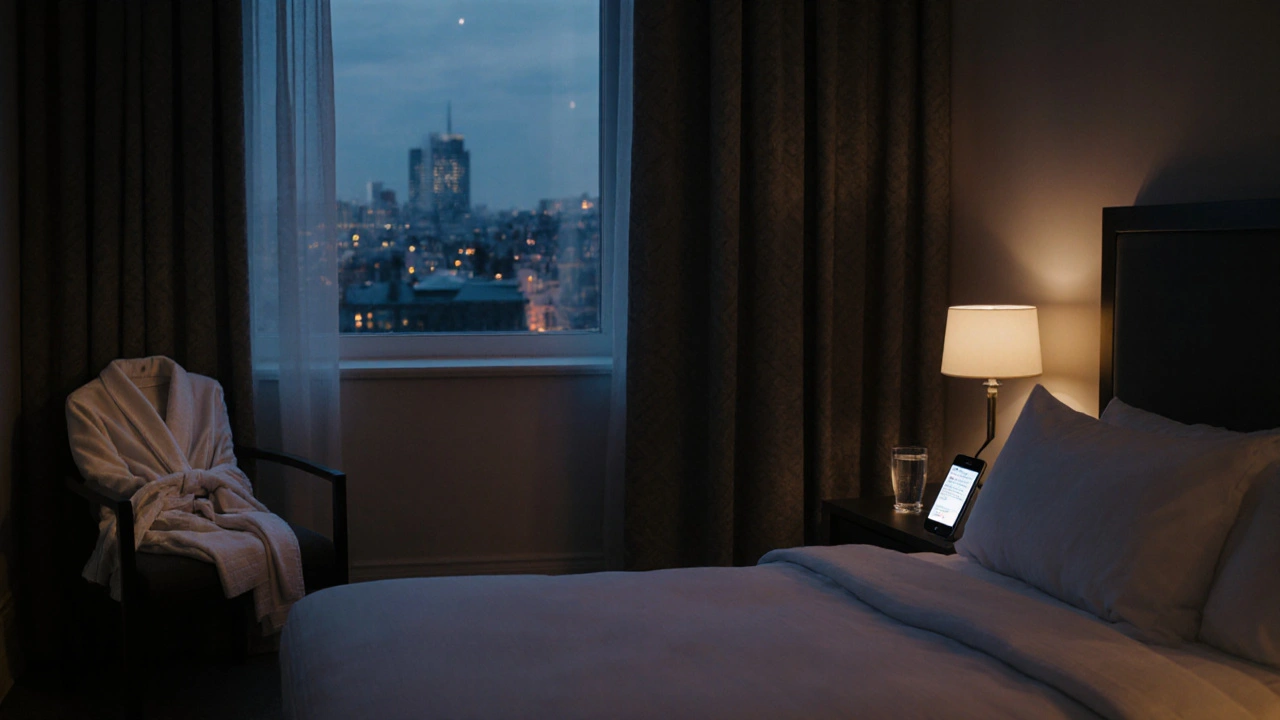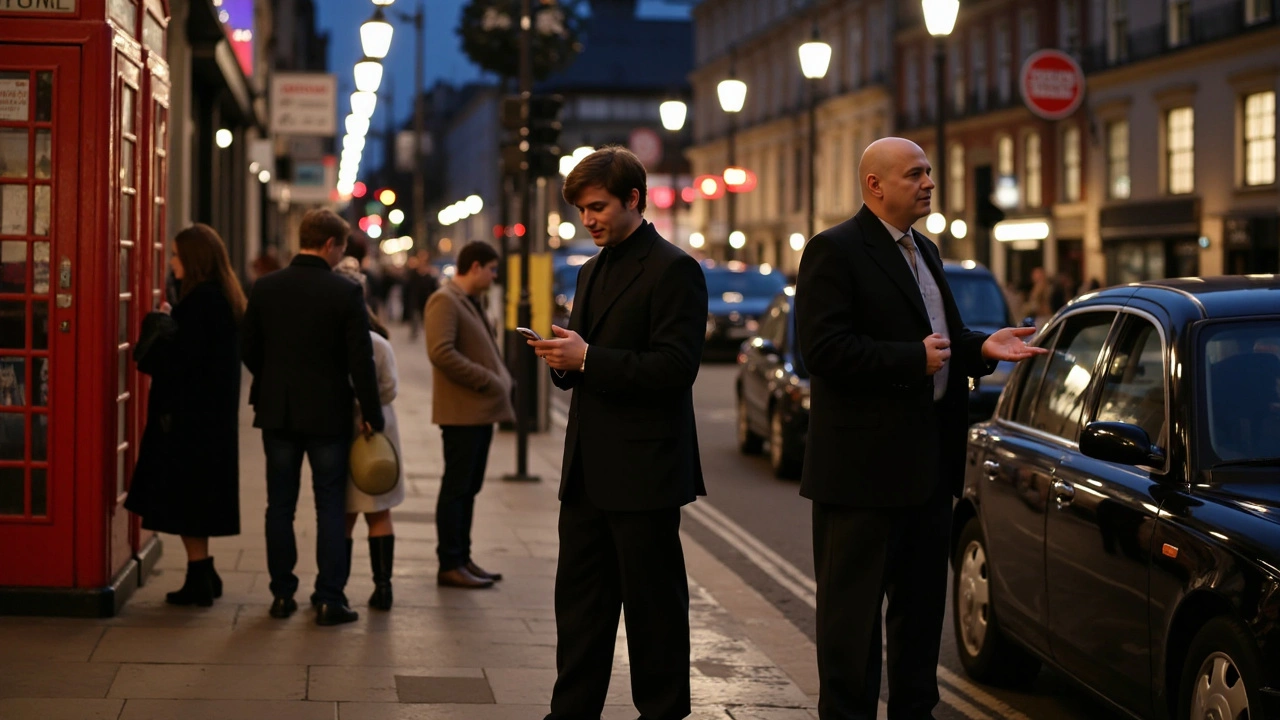Why Call Girls in London Are More Popular Than Ever

More women in London are choosing to work as independent call girls than ever before-and it’s not just about money. The shift isn’t flashy or dramatic. It’s quiet, practical, and rooted in real-life needs. Rent is high. Jobs are unstable. But with a phone, a laptop, and some boundaries, many are building flexible, self-directed income streams that traditional jobs can’t match.
Why are more women in London becoming call girls?
The rise isn’t about glamour or desperation. It’s about control. Women who work as call girls in London often cite autonomy as their top reason. They set their own hours, choose who they meet, and decide what services to offer. Unlike 9-to-5 jobs with rigid schedules, this work lets them balance childcare, studies, or side gigs without asking for permission.
A 2024 survey by the London Sex Workers’ Collective found that 68% of independent escorts in the city were not in traditional employment. Many were students, single mothers, or freelancers looking for reliable income without the overhead of agencies or middlemen.
How do call girls in London operate today?
Most don’t work the streets. They use private websites, encrypted messaging apps, and vetted booking platforms. Many create professional profiles with photos, services listed clearly, and rates posted upfront. Some even offer subscription-style access for repeat clients.
Payment is almost always digital-Revolut, PayPal, or bank transfer. No cash. No third-party booking fees. This cuts out the middleman and gives the worker full control over earnings. A typical session in Central London ranges from £150 to £400, depending on experience, location, and service type.
Is it safer now than in the past?
Yes-by design. Modern call girls in London prioritize safety more than ever. They use screening tools like ID verification apps, share location with trusted friends before meetings, and avoid high-risk areas. Many work exclusively from their own homes or short-term rentals, reducing exposure to unpredictable environments.
Platforms like OnlyFans and private booking sites now include built-in safety features: anonymous messaging, automatic time limits on meetings, and emergency alert buttons linked to local support groups. These aren’t optional extras-they’re standard practice.

What services do call girls in London actually offer?
The services vary widely, but most fall into three categories:
- Companionship-dinner, walks, events, conversation. Often the most common request.
- Intimate services-sexual contact, with clear boundaries set in advance.
- Specialty experiences-roleplay, domination, fetish work. These are advertised separately and require explicit consent.
Many clients aren’t looking for sex. They’re looking for connection, confidence, or a break from loneliness. One escort in West London told me she books 70% of her sessions as non-sexual companionship. “People just want to be heard,” she said.
How do call girls handle legal risks?
Prostitution itself isn’t illegal in the UK-but soliciting in public, running a brothel, or controlling someone else’s work is. That’s why nearly all independent call girls in London operate as sole traders, working alone from private spaces.
They avoid advertising in public places. No flyers. No street soliciting. Everything happens online, behind password-protected pages. They also keep records of consent, payment, and communication-just in case. Many consult legal advisors who specialize in sex work law to stay compliant.
The Metropolitan Police don’t target independent workers unless there’s evidence of coercion, trafficking, or underage involvement. Most cases they investigate involve organized networks-not solo operators.

What’s the public perception like?
It’s changing. Ten years ago, calling someone a “call girl” carried heavy stigma. Today, more people understand it as a form of freelance work. Social media has helped normalize it: Instagram accounts run by escorts share behind-the-scenes moments about setting boundaries, managing clients, and building financial independence.
Even mainstream media has shifted. Outlets like The Guardian and BBC have published human-interest stories profiling independent escorts who are also university lecturers, artists, or single parents. The narrative isn’t about victimhood anymore-it’s about agency.
Who are the clients?
They’re not who you think. A 2023 study by the University of Westminster found that 62% of clients were married men between 35 and 55. Others included professionals working long hours, expats living alone, and older men with limited social circles. Few were teenagers or violent offenders-those are outliers.
Most clients pay for discretion, respect, and consistency. Many return monthly. Some have been seeing the same escort for years. It’s less about fantasy and more about reliability.
What’s next for call girls in London?
The trend is moving toward professionalism. More women are branding themselves like entrepreneurs: creating websites, hiring photographers, using CRM tools to manage bookings, and even offering packages like “monthly companionship” or “weekend getaway” services.
Some are starting collectives-small networks of independent workers who share safety tips, legal advice, and referrals. A few have even formed co-ops to rent shared office spaces for client meetings, reducing isolation and increasing security.
Regulation is still unclear, but the demand isn’t going away. As housing costs rise and gig work grows, this model will keep evolving-not because it’s trendy, but because it works for real people trying to get by.









zulfa eliza
November 6, 2025 AT 16:29This is the most real thing I’ve read all year. I know people think it’s just about sex, but honestly? It’s about survival with dignity. I’ve got friends doing this while going to med school or caring for their kids. No one’s forcing them-they’re choosing it because it gives them power. And the safety measures? Genius. No cash, no street corners, just encrypted apps and boundaries. That’s not exploitation, that’s entrepreneurship.
Also, the fact that 70% of sessions are non-sexual? That’s the quiet revolution right there. People are lonely. They just want someone to listen without judgment. This work fills that gap better than therapy for some folks. Stop stigmatizing, start supporting.
Lauren de Bruyn
November 8, 2025 AT 07:28Wait. Let me get this straight. You’re glorifying prostitution as ‘freelance work’? Next you’ll say human trafficking is just ‘gig economy innovation.’ This isn’t empowerment-it’s a symptom of a broken system. The government lets this fly because they don’t care about women. And don’t even get me started on how these ‘safety apps’ are just tools for predators to find targets. The UK is becoming a moral wasteland. This isn’t progress-it’s collapse dressed up in LinkedIn buzzwords.
akash gupta
November 8, 2025 AT 18:40Bro, this is straight-up neoliberal survival mode. In India we call this ‘independent income generation under informal economy’-same thing, different context. No middlemen, no agency cuts, digital payments, self-branding? That’s gig capitalism at its most raw. These women are doing what every freelancer dreams of: controlling the client, the price, the schedule. No HR, no meetings, no passive-aggressive emails.
And yeah, the non-sexual stuff? That’s the real gold. Companionship as a service. Emotional labor monetized. It’s not new-it’s just now being named. Welcome to the future, baby. The gig economy didn’t kill jobs. It redefined them.
Albert Sarvis
November 10, 2025 AT 18:25I want to commend the incredible resilience and strategic thinking demonstrated by these women. This is not merely an economic adaptation-it is a profound act of self-determination in the face of systemic challenges. The discipline required to manage client boundaries, maintain digital security, and operate with legal compliance is nothing short of extraordinary.
These individuals are not victims. They are leaders. They are innovators. They are building sustainable, ethical, and autonomous livelihoods in an economy that has too often left them behind. Their success is a testament to human ingenuity and courage. We should celebrate-not stigmatize-this movement toward personal sovereignty.
becky cavan
November 11, 2025 AT 17:16This isn’t about sex. It’s about control. And that’s powerful.
Joel Barrionuevo
November 12, 2025 AT 16:08I’ve been thinking a lot about how we define work. We say ‘real job’ like it’s only valid if it’s in an office with a badge. But these women? They’re managing risk, negotiating value, handling logistics, building trust, and creating safety protocols-all while balancing life. That’s not just work. That’s leadership.
And the clients? Most of them aren’t monsters. They’re just people who’ve been taught not to ask for connection. So they pay for it. That’s sad, but also kind of human. Maybe the real problem isn’t the work-it’s how lonely we’ve all become.